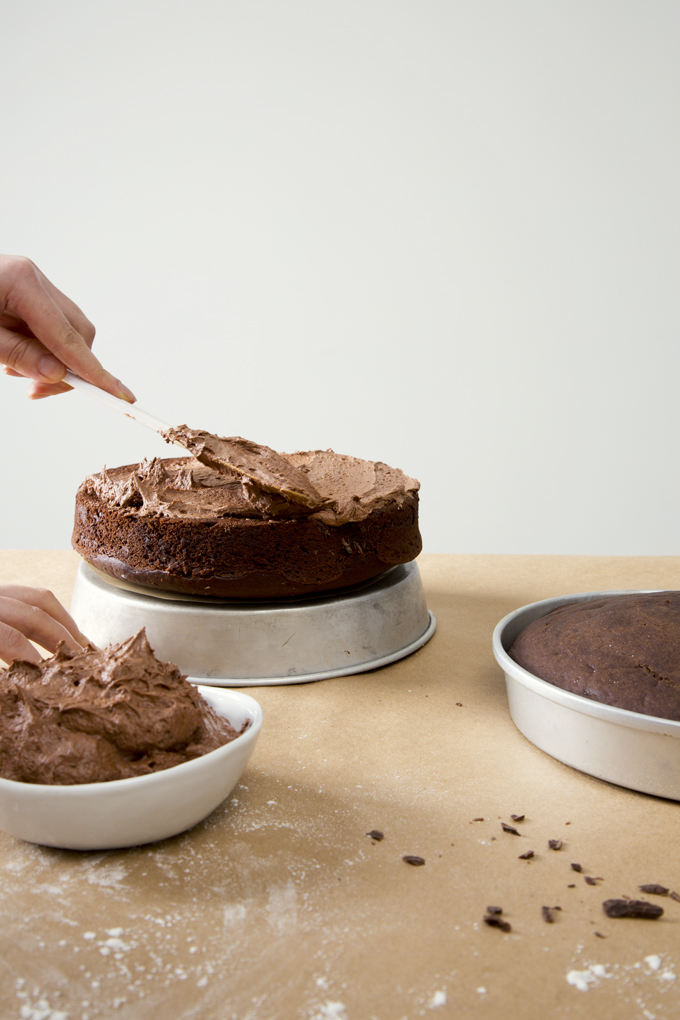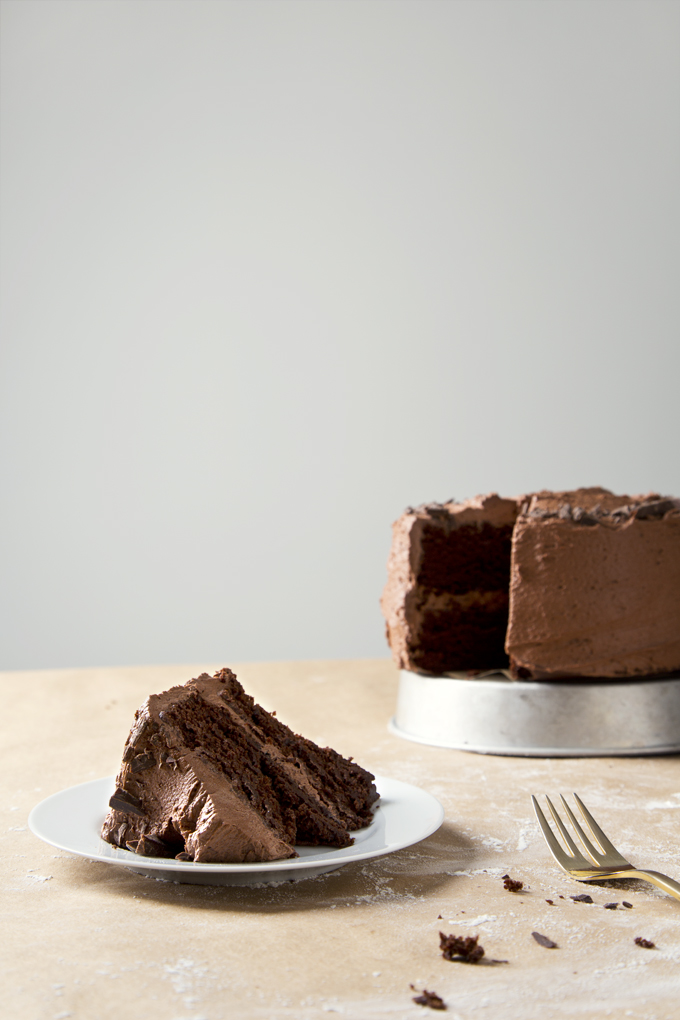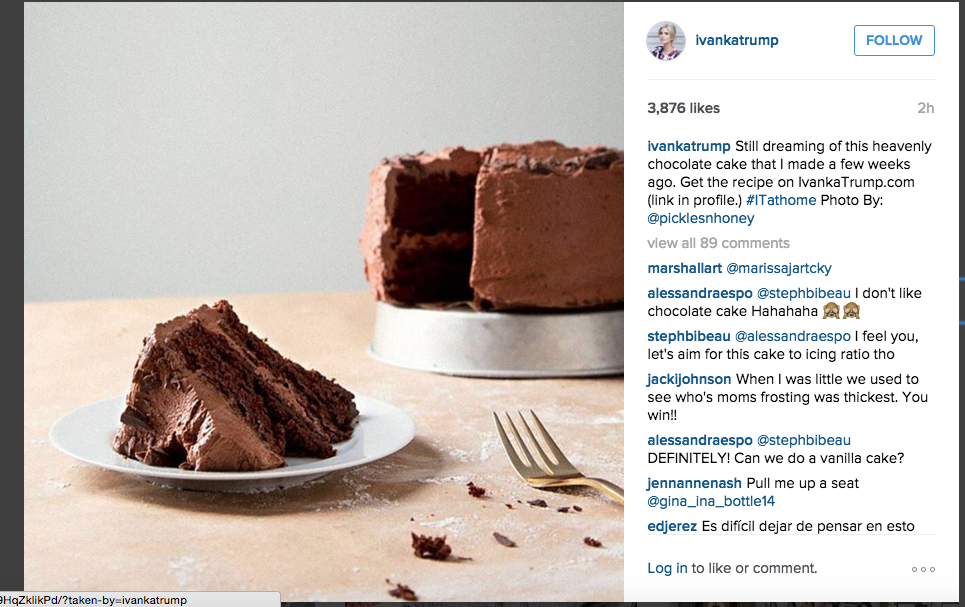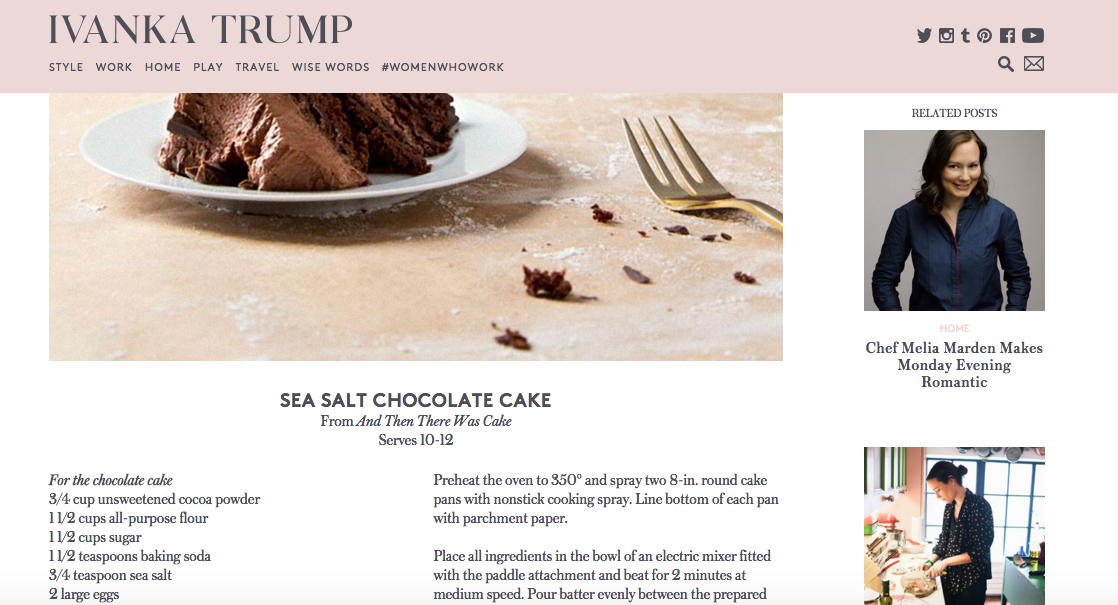
Dear Famous People: Stealing is Wrong (and Illegal)
 The thing that makes the internet great is our ability to instantaneously share work, ideas, concepts and ultimately, to inspire each other.
The thing that makes the internet great is our ability to instantaneously share work, ideas, concepts and ultimately, to inspire each other.
The thing that makes the internet not-so-great is the person who would rather take the easy road and use the things other people create and position them as his/her own. The internet makes it exceptionally easy for this person.
I’m sharing this more personal post with you all today because Aaron and I recently had a very wealthy, very famous person take our photo and post it on her Instagram account with a link back to her website for the recipe. Reposting our photos happens all of the time, but this instance was particularly upsetting because I then saw that she was using our photo on her website to represent a non-vegan recipe from someone else’s cookbook. She never contacted me to ask to use our photo, and I never gave her permission to use it.


Copyright Infringement, according to Wikipedia is:
…the use of works protected by copyright law without permission, infringing certain exclusive rights granted to the copyright holder, such as the right to reproduce, distribute, display or perform the protected work, or to make derivative works.
I feel like this is worth calling out because it’s often treated as a wishy-washy area when it’s quite straightforward:
Photo credit is not a substitute for permission, nor does it replace monetary compensation
Even if someone does the bare minimum and gives credit, that person is still benefitting from sharing the content someone else worked hard to create.
For a long time, I thought that this behavior was limited to content scraping, spammy websites. Sadly, it’s not. It’s also people with big names, lots of money and resources, who talk about #girlpower as they deny their fellow women fair payment for their works. This is a problem that’s becoming more and more pervasive because it’s easy to take content that isn’t theirs. It’s easy to appropriate it however they want. And it’s easy to disregard the time, money, effort, skill, and education of the person who created the original content.
What People Mean When They Offer You Exposure
What these people with big names are telling us when they “pay us with exposure” is that while they don’t value our work enough to pay for it with money, they’re offering us “opportunity” to make the next person pay more than they themselves should have paid us this time because we’ll get a little sprinkling of their fame dust.
Stealing In The Real World
I want to take this offline and into the real world for a moment, because I think it’s an important comparison:
Let’s say you have a one-of-a-kind painting that you made hanging in your living room. Someone comes to your house and takes your painting and makes a bunch of copies with it and then puts it back in your living room. You still have your painting, but now this person who mass-produced copies is selling them and making money. They’re giving you credit as the original artist, but they’re still making money off of your work without your permission, and they’re making more money than you are (because you’re not making people pay to view your painting). Are you any less taken advantage of just because they’re giving you “credit”?
Stealing Is Okay (As Long as You’re Famous)
People get away with this because we, largely, allow it. We allow it because most of the time we don’t know it’s someone else’s work or we don’t know they didn’t give permission to have it reposted. And when we do know, we often accept it as okay because we think that we, the original content creators, are getting significant enough value for our work because someone more popular or famous reposted it. That’s just not true.
The Real Value of Exposure
Realistically, the way that online advertising works today, Aaron and I would need to see hundreds of thousands of new visitors to Pickles & Honey in order to get “paid by exposure”. I only just recently brought back display advertising to help cover our expenses and we’re averaging around $2/1,000 impressions (yep, it’s that low). If fair market value is $500 for our photo and recipe, we would need 250,000 additional impressions on Pickles & Honey to make the “exposure” fair payment for our work.
Needless to say, unless the New York Times is asking to share our photo on their homepage with a link back to our blog to get the recipe, we’ll never get paid for our content via exposure.
What We Can Do About It
We’re never going to stop the stealing, but there have got to be some things we can do to head it off. Here are a few of our thoughts:
- Educate people. Perhaps because blogs don’t require a subscription fee, quite a few people honestly don’t think of copying and pasting a photo or recipe as stealing. Recipe ingredients can technically be copied and pasted (though that doesn’t make it any less shitty!), but instructions are protected under copyright law, as are photos. The person who presses the camera shutter owns the copyright, which means Aaron owns the copyright for all Pickles & Honey photos.
- Post an example on our blogs of what giving proper credit looks like (we plan to add this) for those times when we do give permission to repost a photo.
- Band together to call people out when they’re blatantly stealing. Aaron and I lost half a day trying to get Ivanka Trump to take down our stolen content, but it wasn’t until you all started leaving her comments that her team listened. Even though she has 650k Instagram followers and we have 3k, we were able to make some noise as a community. P.S. THANK YOU.
There’s a Person on the Other End of That Content
Just as someone wouldn’t steal an apple from the grocery store and post a photo of it on Instagram as “payment in the form of exposure”, we need to get to a point where it’s also considered wrong and reputation-damaging for a person/brand/publication to lift content from someone else’s website, tag the creator, and use it as their own. There’s a person on the other end of that “free” content.
Thanks for reading. We would really love to hear your thoughts and get a conversation going.
-Amanda & Aaron
